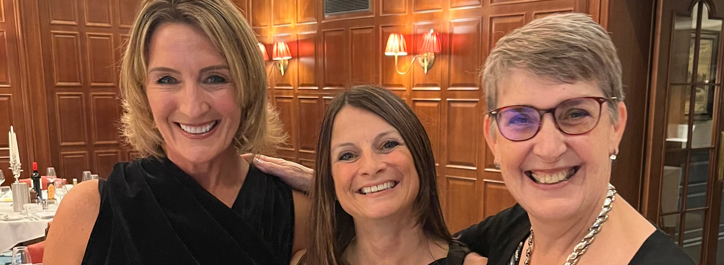Why is it so important to increase the number of female role models in business?
This year the UK gained its second female prime minister, retail giant John Lewis appointed its first female MD in its 150-year history and even four out of the final five on The Apprentice were women. There is compelling evidence that if the number of female role models continues to rise, it will pave the way for more women to progress on to senior level roles in the future.
The ‘Retaining and Advancing Women in Business’ report by Every Woman specifically focused on how exposing women to female role models can drastically improve their chances of success and it revealed that role models were a major source of inspiration for 74% of women.
That’s why it is so refreshing that the government’s latest independent review into women in leadership is focussed on increasing the number of female leaders, not just women in the boardroom. While it’s fantastic that, following the initial Lord Davies review, there are now more female non-executive directors in the boardroom, there is still more work to be done. The very nature of these roles means these women are less visible within the organisation, making it harder for them to be role models or to act as mentors.
Providing mentors and role models helps female employees to build their confidence, encourages them to speak up about their ideas, step up to the next level and to stand up against any issues of unfairness. This is backed by the findings of the ‘Women in Business, Turning Promise into Practice’ report by Grant Thornton. Having interviewed over 5,000 women across the world, the clear majority said the most significant thing in helping them succeed in leadership was having a mentor or a sponsor.
The current figures show that just 21% of senior roles in UK businesses are held by women and 36% of businesses have no senior women at all, so how can employers pair their rising talent with mentors if there are no existing senior women in the organisation? While the long-term aim is to increase the number of women working in these visible positions, role models and mentors can be just as effective if they are sourced from outside of the business. There are some fantastically inspiring business women across the Eastern region and many groups set up to encourage these women to network with each other.
Mentors and role models don’t have to be of the same gender either. The Murray Edwards College at Cambridge University has recently carried out research into how workplace culture can be developed to become more inclusive. The college took the approach of gathering men’s views of women’s career progression for its ‘Collaborating with Men’ report. One of the recommendations was to look at ‘mixing up’ mentoring. Many people seek a mentor or sponsor of the same gender because they perceive there will be more common ground. This study suggested that picking a mentor of the opposite gender will help people to appreciate what the workplace looks like from a different point of view and enable them to learn from each other’s strengths.
We hear first-hand from those involved in our Women’s Leadership Programme just how valuable mentoring and role models can be. The programme, run in conjunction with People & Performance, is designed to help aspiring female leaders to enhance their confidence, develop leadership skills and to build a network whilst gaining exposure to high profile, successful women. The first Women’s Leadership Programme of 2017 will take place in January and March. For more information email Lucy Plumb at lucy.plumb@prs.uk.com.



